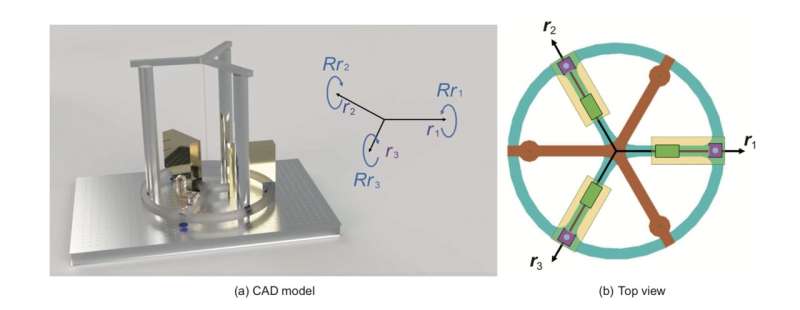SwRI-led Lucy observes first-ever contact binary orbiting an asteroid
Wednesday, 08 November 2023 06:14
Boulder CO (SPX) Nov 08, 2023
 After the Southwest Research Institute-led Lucy mission flew past the asteroid Dinkinesh, the team discovered that it is even more "marvelous" as its newly discovered satellite is now shown to be a double-lobed moonlet. As NASA's Lucy spacecraft continued to return data acquired during its first asteroid encounter on Nov. 1, 2023, the team discovered that Dinkinesh's surprise satellite is itself
After the Southwest Research Institute-led Lucy mission flew past the asteroid Dinkinesh, the team discovered that it is even more "marvelous" as its newly discovered satellite is now shown to be a double-lobed moonlet. As NASA's Lucy spacecraft continued to return data acquired during its first asteroid encounter on Nov. 1, 2023, the team discovered that Dinkinesh's surprise satellite is itself
 After the Southwest Research Institute-led Lucy mission flew past the asteroid Dinkinesh, the team discovered that it is even more "marvelous" as its newly discovered satellite is now shown to be a double-lobed moonlet. As NASA's Lucy spacecraft continued to return data acquired during its first asteroid encounter on Nov. 1, 2023, the team discovered that Dinkinesh's surprise satellite is itself
After the Southwest Research Institute-led Lucy mission flew past the asteroid Dinkinesh, the team discovered that it is even more "marvelous" as its newly discovered satellite is now shown to be a double-lobed moonlet. As NASA's Lucy spacecraft continued to return data acquired during its first asteroid encounter on Nov. 1, 2023, the team discovered that Dinkinesh's surprise satellite is itself The Ones Who Make Curiosity Go: Sols 4001-4003
Wednesday, 08 November 2023 06:14
Pasadena CA (JPL) Nov 08, 2023
 Earth planning date: Monday, November 6: It is a time of milestones for Curiosity, with the passage of Sol 4000 over the weekend (celebrated here and here) and the start of her sixth solar conjunction this week. Each time Curiosity (and Mars) slip on the other side of the Sun from Earth, the science and engineering teams miss her and the new discoveries she makes every sol. I dare say we also mi
Earth planning date: Monday, November 6: It is a time of milestones for Curiosity, with the passage of Sol 4000 over the weekend (celebrated here and here) and the start of her sixth solar conjunction this week. Each time Curiosity (and Mars) slip on the other side of the Sun from Earth, the science and engineering teams miss her and the new discoveries she makes every sol. I dare say we also mi
 Earth planning date: Monday, November 6: It is a time of milestones for Curiosity, with the passage of Sol 4000 over the weekend (celebrated here and here) and the start of her sixth solar conjunction this week. Each time Curiosity (and Mars) slip on the other side of the Sun from Earth, the science and engineering teams miss her and the new discoveries she makes every sol. I dare say we also mi
Earth planning date: Monday, November 6: It is a time of milestones for Curiosity, with the passage of Sol 4000 over the weekend (celebrated here and here) and the start of her sixth solar conjunction this week. Each time Curiosity (and Mars) slip on the other side of the Sun from Earth, the science and engineering teams miss her and the new discoveries she makes every sol. I dare say we also mi Deploying and demonstrating navigation aids on the lunar surface
Wednesday, 08 November 2023 06:14
Washington DC (SPX) Nov 08, 2023
 NASA is developing lunar navigation beacons to be deployed on spacecraft or the lunar surface to aid in localization and help future space vehicles determine position, velocity, and time to high accuracy.
"Are we there yet?" is a constant question on any journey. As humanity expands its presence on, near, and around the Moon, new systems are needed to provide navigation signals similar those pr
NASA is developing lunar navigation beacons to be deployed on spacecraft or the lunar surface to aid in localization and help future space vehicles determine position, velocity, and time to high accuracy.
"Are we there yet?" is a constant question on any journey. As humanity expands its presence on, near, and around the Moon, new systems are needed to provide navigation signals similar those pr
 NASA is developing lunar navigation beacons to be deployed on spacecraft or the lunar surface to aid in localization and help future space vehicles determine position, velocity, and time to high accuracy.
"Are we there yet?" is a constant question on any journey. As humanity expands its presence on, near, and around the Moon, new systems are needed to provide navigation signals similar those pr
NASA is developing lunar navigation beacons to be deployed on spacecraft or the lunar surface to aid in localization and help future space vehicles determine position, velocity, and time to high accuracy.
"Are we there yet?" is a constant question on any journey. As humanity expands its presence on, near, and around the Moon, new systems are needed to provide navigation signals similar those pr Propelling NASA closer to the Moon and Mars with Open Innovation
Wednesday, 08 November 2023 06:14
Washington DC (SPX) Nov 08, 2023
 NASA is leading humanity's return to the Moon through Artemis. Artemis will land the first woman and first person of color on the Moon and explore more of the lunar surface than ever before, using innovating technologies for scientific discovery and establishing a long-term presence. The technologies developed and knowledge gained through Artemis will contribute to our next ambitious target: sen
NASA is leading humanity's return to the Moon through Artemis. Artemis will land the first woman and first person of color on the Moon and explore more of the lunar surface than ever before, using innovating technologies for scientific discovery and establishing a long-term presence. The technologies developed and knowledge gained through Artemis will contribute to our next ambitious target: sen
 NASA is leading humanity's return to the Moon through Artemis. Artemis will land the first woman and first person of color on the Moon and explore more of the lunar surface than ever before, using innovating technologies for scientific discovery and establishing a long-term presence. The technologies developed and knowledge gained through Artemis will contribute to our next ambitious target: sen
NASA is leading humanity's return to the Moon through Artemis. Artemis will land the first woman and first person of color on the Moon and explore more of the lunar surface than ever before, using innovating technologies for scientific discovery and establishing a long-term presence. The technologies developed and knowledge gained through Artemis will contribute to our next ambitious target: sen An ammonia trail to exoplanets
Wednesday, 08 November 2023 06:14
Zurich, Switzerland (SPX) Nov 08, 2023
 They reveal the origin of wine, the age of bones and fossils, and they serve as diagnostic tools in medicine. Isotopes and isotopologues - molecules that differ only in the composition of their isotopes - also play an increasingly important role in astronomy. For example, the ratio of carbon-12 (12C) to carbon-13 (13C) isotopes in the atmosphere of an exoplanet allows scientists to infer the dis
They reveal the origin of wine, the age of bones and fossils, and they serve as diagnostic tools in medicine. Isotopes and isotopologues - molecules that differ only in the composition of their isotopes - also play an increasingly important role in astronomy. For example, the ratio of carbon-12 (12C) to carbon-13 (13C) isotopes in the atmosphere of an exoplanet allows scientists to infer the dis
 They reveal the origin of wine, the age of bones and fossils, and they serve as diagnostic tools in medicine. Isotopes and isotopologues - molecules that differ only in the composition of their isotopes - also play an increasingly important role in astronomy. For example, the ratio of carbon-12 (12C) to carbon-13 (13C) isotopes in the atmosphere of an exoplanet allows scientists to infer the dis
They reveal the origin of wine, the age of bones and fossils, and they serve as diagnostic tools in medicine. Isotopes and isotopologues - molecules that differ only in the composition of their isotopes - also play an increasingly important role in astronomy. For example, the ratio of carbon-12 (12C) to carbon-13 (13C) isotopes in the atmosphere of an exoplanet allows scientists to infer the dis Calling all Eclipse Enthusiasts: Become a NASA Partner Eclipse Ambassador!
Wednesday, 08 November 2023 06:14
Los Angeles CA (SPX) Nov 08, 2023
 Are you an astronomy enthusiast or undergraduate student with a passion for sharing space science? We are excited to share with you a wonderful opportunity to become an official NASA Partner Eclipse Ambassador and help your community experience the awe and wonder of science.
In this exciting NASA partnership funded through NASA's Science Activation program, undergraduate students and exper
Are you an astronomy enthusiast or undergraduate student with a passion for sharing space science? We are excited to share with you a wonderful opportunity to become an official NASA Partner Eclipse Ambassador and help your community experience the awe and wonder of science.
In this exciting NASA partnership funded through NASA's Science Activation program, undergraduate students and exper
 Are you an astronomy enthusiast or undergraduate student with a passion for sharing space science? We are excited to share with you a wonderful opportunity to become an official NASA Partner Eclipse Ambassador and help your community experience the awe and wonder of science.
In this exciting NASA partnership funded through NASA's Science Activation program, undergraduate students and exper
Are you an astronomy enthusiast or undergraduate student with a passion for sharing space science? We are excited to share with you a wonderful opportunity to become an official NASA Partner Eclipse Ambassador and help your community experience the awe and wonder of science.
In this exciting NASA partnership funded through NASA's Science Activation program, undergraduate students and exper New nanosatellite to test novel AI technologies on board
Wednesday, 08 November 2023 06:14
Wurzburg, Germany (SPX) Nov 08, 2023
 After more than two years of development, the nanosatellite SONATE-2 is about to be launched. The lift-off into orbit by a rocket is expected in March 2024. The satellite was designed and built by a team led by aerospace engineer Professor Hakan Kayal from Julius-Maximilians-Universitat (JMU) Wurzburg in Bavaria, Germany.
JMU has been developing small satellite missions for around 20 years
After more than two years of development, the nanosatellite SONATE-2 is about to be launched. The lift-off into orbit by a rocket is expected in March 2024. The satellite was designed and built by a team led by aerospace engineer Professor Hakan Kayal from Julius-Maximilians-Universitat (JMU) Wurzburg in Bavaria, Germany.
JMU has been developing small satellite missions for around 20 years
 After more than two years of development, the nanosatellite SONATE-2 is about to be launched. The lift-off into orbit by a rocket is expected in March 2024. The satellite was designed and built by a team led by aerospace engineer Professor Hakan Kayal from Julius-Maximilians-Universitat (JMU) Wurzburg in Bavaria, Germany.
JMU has been developing small satellite missions for around 20 years
After more than two years of development, the nanosatellite SONATE-2 is about to be launched. The lift-off into orbit by a rocket is expected in March 2024. The satellite was designed and built by a team led by aerospace engineer Professor Hakan Kayal from Julius-Maximilians-Universitat (JMU) Wurzburg in Bavaria, Germany.
JMU has been developing small satellite missions for around 20 years Ireland's first satellite on its way to launch
Wednesday, 08 November 2023 06:14
Paris (ESA) Nov 08, 2023
 After years of development with the support of the ESA Education programme, the Educational Irish Research Satellite 1 (EIRSAT-1) is set to launch in November, marking Ireland's first steps into space.
EIRSAT-1 was built by students from University College Dublin under the framework of ESA Academy's Fly Your Satellite! programme (FYS) - a fully hands-on initiative supporting university stu
After years of development with the support of the ESA Education programme, the Educational Irish Research Satellite 1 (EIRSAT-1) is set to launch in November, marking Ireland's first steps into space.
EIRSAT-1 was built by students from University College Dublin under the framework of ESA Academy's Fly Your Satellite! programme (FYS) - a fully hands-on initiative supporting university stu
 After years of development with the support of the ESA Education programme, the Educational Irish Research Satellite 1 (EIRSAT-1) is set to launch in November, marking Ireland's first steps into space.
EIRSAT-1 was built by students from University College Dublin under the framework of ESA Academy's Fly Your Satellite! programme (FYS) - a fully hands-on initiative supporting university stu
After years of development with the support of the ESA Education programme, the Educational Irish Research Satellite 1 (EIRSAT-1) is set to launch in November, marking Ireland's first steps into space.
EIRSAT-1 was built by students from University College Dublin under the framework of ESA Academy's Fly Your Satellite! programme (FYS) - a fully hands-on initiative supporting university stu Detect gravitational waves with an interferometric seismometer array on lunar nearside
Wednesday, 08 November 2023 06:14
Beijing, China (SPX) Nov 08, 2023
 In a groundbreaking development of China's manned lunar missions, the China National Space Administration is calling for possible experiments to leverage the Moon's unique properties in science. Undoubtedly, the astronomical community eagerly embraces this opportunity. A team lead by Department of Astronomy, Beijing Normal University, recently proposed a promising plan to detect gravitational wa
In a groundbreaking development of China's manned lunar missions, the China National Space Administration is calling for possible experiments to leverage the Moon's unique properties in science. Undoubtedly, the astronomical community eagerly embraces this opportunity. A team lead by Department of Astronomy, Beijing Normal University, recently proposed a promising plan to detect gravitational wa
 In a groundbreaking development of China's manned lunar missions, the China National Space Administration is calling for possible experiments to leverage the Moon's unique properties in science. Undoubtedly, the astronomical community eagerly embraces this opportunity. A team lead by Department of Astronomy, Beijing Normal University, recently proposed a promising plan to detect gravitational wa
In a groundbreaking development of China's manned lunar missions, the China National Space Administration is calling for possible experiments to leverage the Moon's unique properties in science. Undoubtedly, the astronomical community eagerly embraces this opportunity. A team lead by Department of Astronomy, Beijing Normal University, recently proposed a promising plan to detect gravitational wa ESA further boosts RFA One across Europe
Wednesday, 08 November 2023 05:34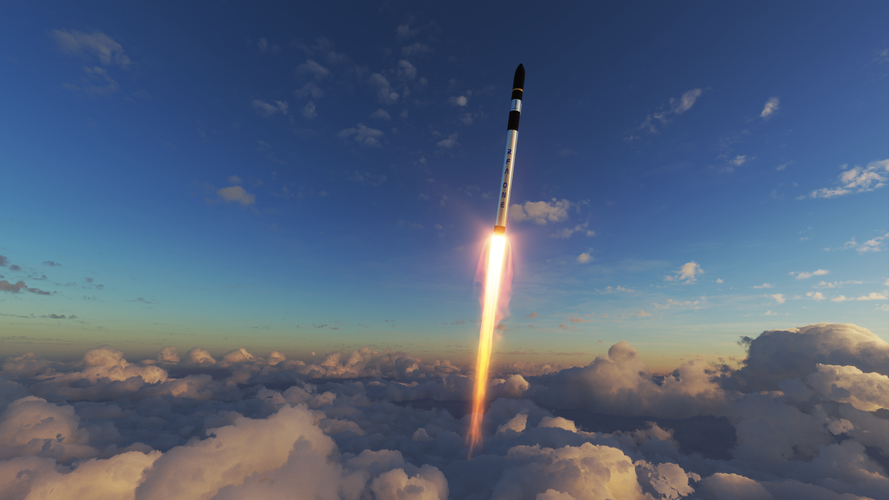
ESA has committed further Boost! Programme funding to German startup Rocket Factory Augsburg, known as RFA, for the development of commercial space transportation services based on the RFA One launch vehicle at sites in Portugal, Germany and the UK.
EU finalizing contract with SpaceX for Galileo launches
Wednesday, 08 November 2023 02:06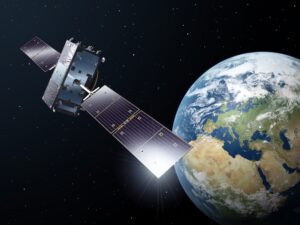

Virgin Galactic lays off staff as it focuses on next-generation suborbital vehicle
Tuesday, 07 November 2023 23:37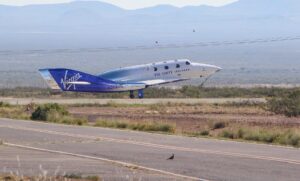
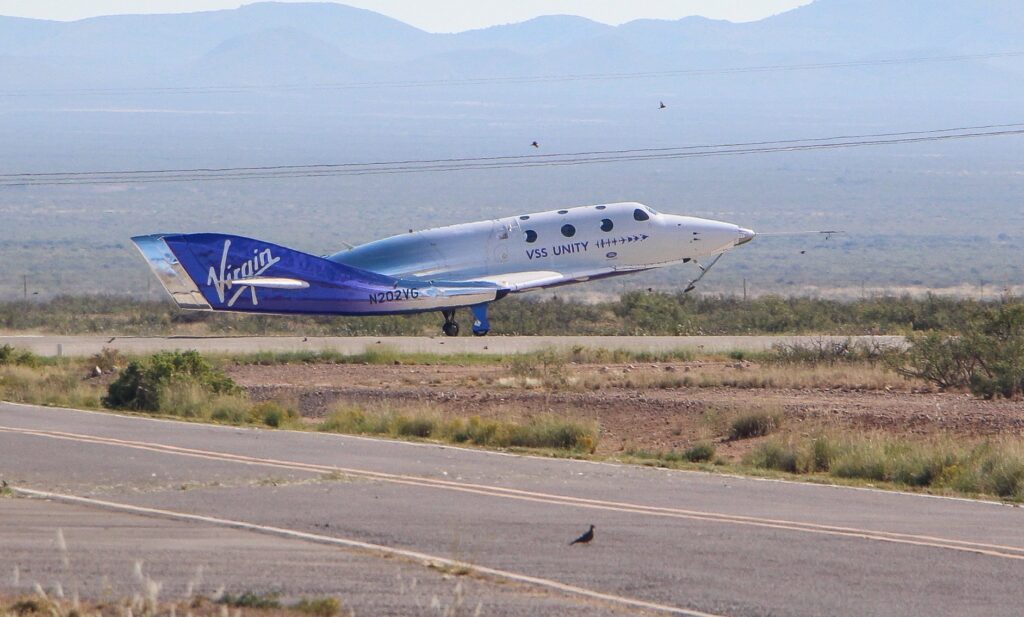
Space Force procurement chief to ‘double down’ on reforms
Tuesday, 07 November 2023 22:00

Lynk Global starts initial direct-to-device services in Solomon Islands
Tuesday, 07 November 2023 21:20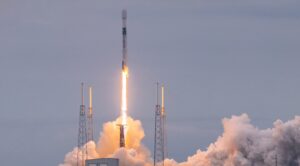
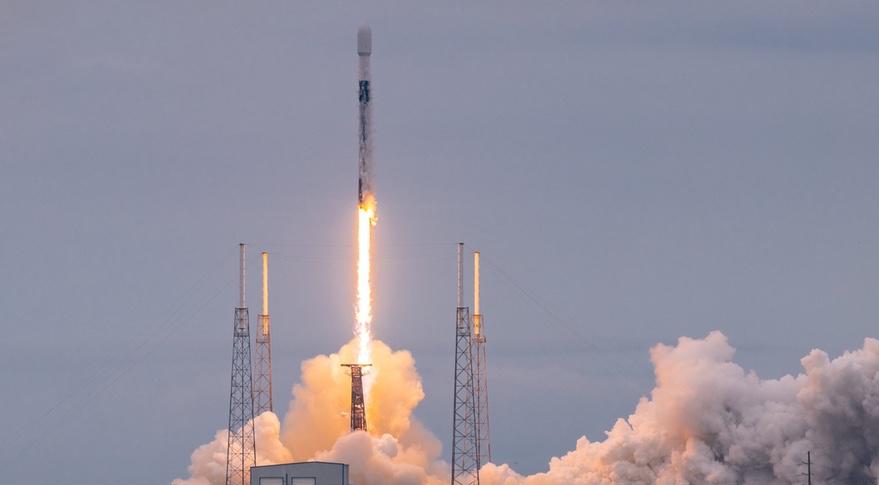
Detecting gravitational waves with an interferometric seismometer array on the lunar near side
Tuesday, 07 November 2023 20:58